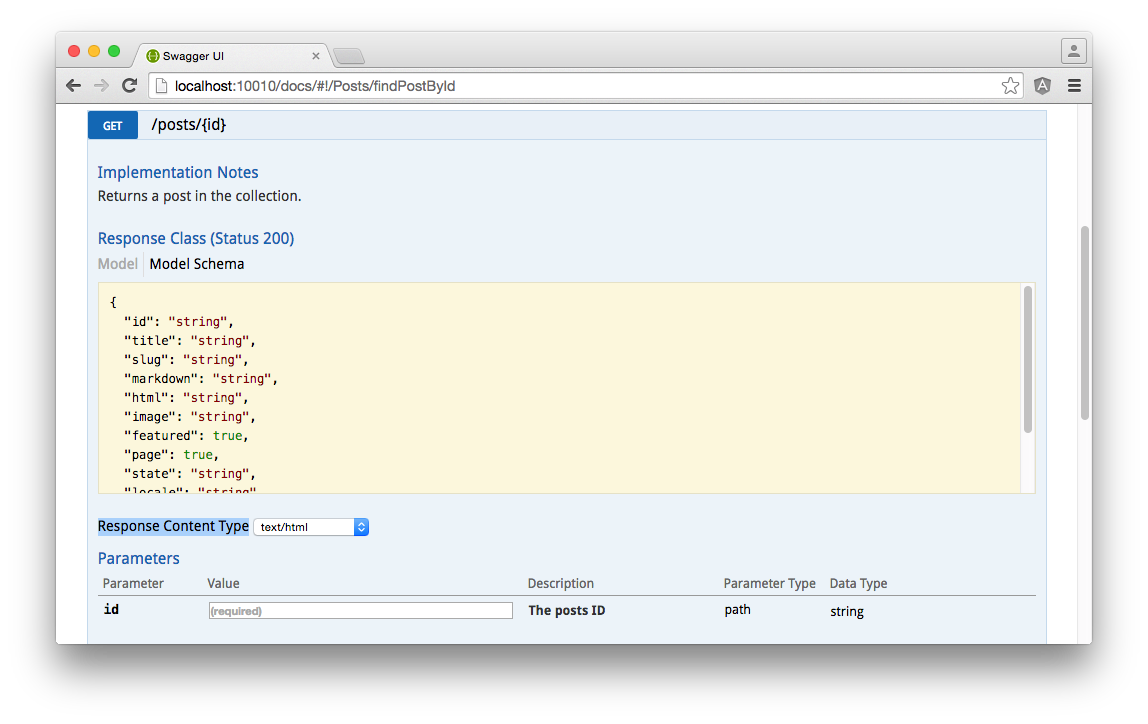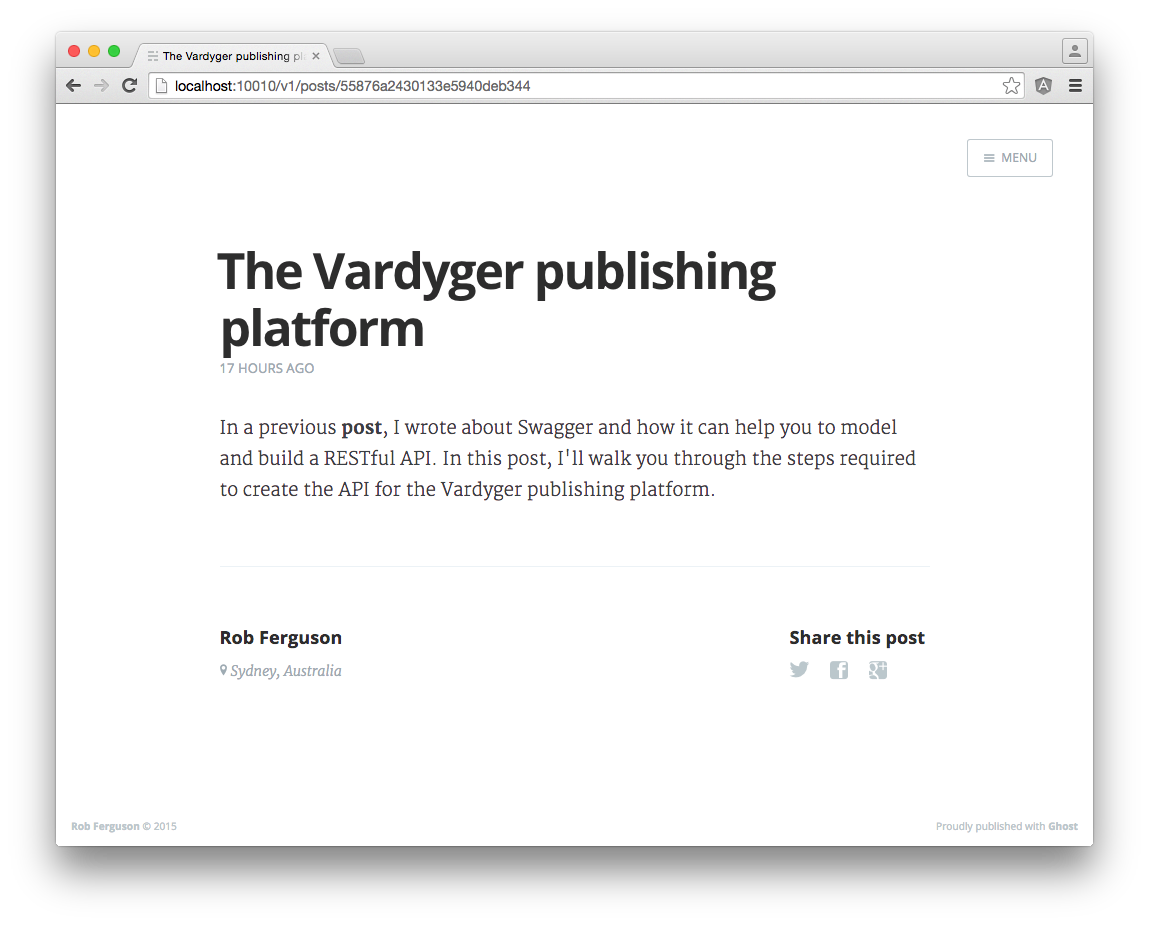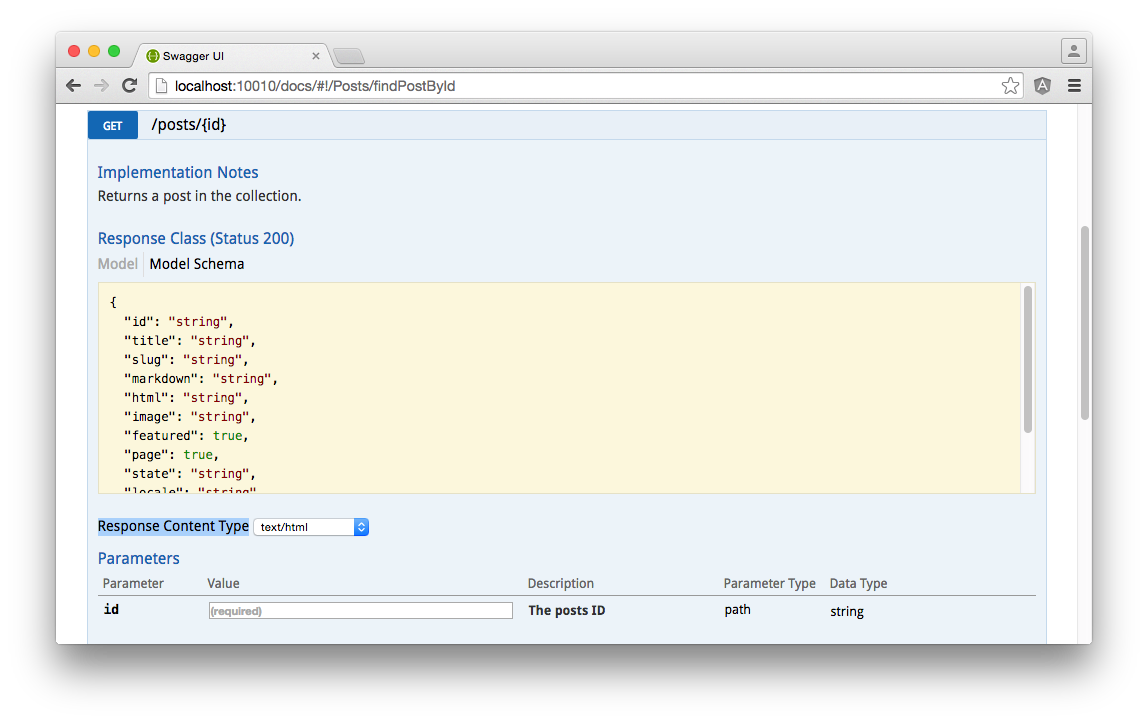In a previous post, I wrote about creating the API for the The Vardyger publishing platform. In this post, we'll enhance the API by adding support for content negotiation (e.g., application/json or text/html).
The Swagger Specification
We'll start by updating the GET /posts/{id} URI, jump to the /posts/{id} section of (Vardyger/core/server/api/swagger/) swagger.yaml:
/posts/{id}:
x-swagger-router-controller: posts
get:
description: Returns a post in the collection.
operationId: findPostById
parameters:
- name: id
in: path
description: The posts ID
required: true
type: string
tags:
- Posts
produces:
- application/json
responses:
200:
...
All we need to do is to update the produces section as follows:
produces:
- application/json
- text/html
Now, launch the API:
swagger project start
Navigate to http://localhost:10010/docs:

And, you should see two options ('application/json' and 'text/html') listed in the "Response Content Type" select control.
The Posts Controller
We also need to update the findPostById operation, in the (Vardyger/core/server/api/controllers/) posts.js controller:
function findPostById(req, res) {
var id = req.swagger.params.id.value,
view = 'post',
response;
Post.findById(id).exec(function(error, model) {
if (! error) {
if (null === model || undefined === model) {
returnError(res, status.NOT_FOUND);
}
response = formatResponse(model);
res.format({
html: function() {
res.type(TEXT_HTML);
res.render(view, response);
},
json: function() {
res.type(APPLICATION_JSON);
res.status(status.OK).send(JSON.stringify(response));
},
default: function() {
returnError(res, status.NOT_ACCEPTABLE);
}
})
} else {
returnError(res, status.INTERNAL_SERVER_ERROR);
}
});
}
The heavy lifting is handled by Express's res.format() which performs content-negotiation on the Accept HTTP header of the request object.
Try it, from the command line:
curl http://localhost:10010/v1/posts/{id} --header "Accept: text/html"
Or, from your browser:

Note: I also needed to set validateResponse: false in the config object passed to the Swagger Express middleware (swagger-express-mw).
